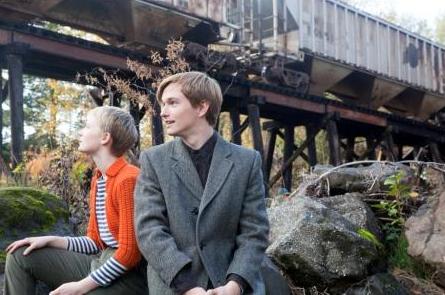
Love story, plain and simple. And a beautiful one at that. The set-up involves a teenage boy mourning over the death of family members and his care for a teenage girl who is stricken with cancer. Gus Van Sant’s new film “Restless” is primarily a love story more than anything else, one that is not morose but inspiring, one that can resonate with anybody who warms to stories of young love. First-time actor Henry Hopper is a peculiar but appealing actor, and Mia Wasikowska of “The Kids are All Right” gives her best performance to date (if I were voting, I’d nominate her for Best Actress). “Restless” will open in select theaters on September 16thand widens distribution in the following weeks.
Director Van Sant, coming off his triumph “Milk,” and producer Bryce Dallas Howard, winning laurels for her current performance in “The Help,” were in Los Angeles this month to discuss their film at the “Restless” press junket.
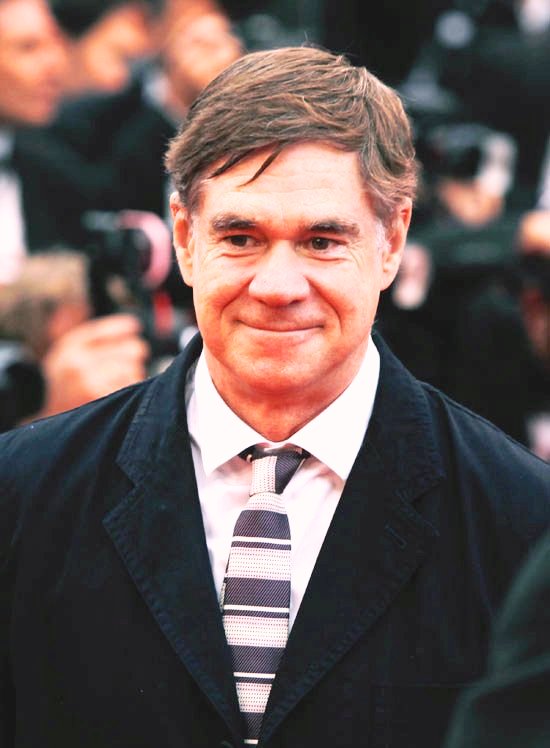
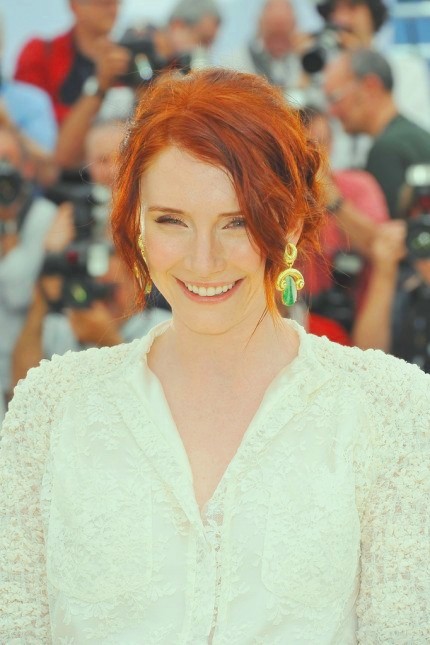
Are you concerned about this film being tagged as a death story?
BDH: The illness is the background of the story, but it’s not really what the story is about. It’s the inciting circumstances for another type of genre.
Undeniably, there is a lightness and lovely quality to the script that attracted you?
GVS: One of the conventions of the story was that it had a very dark background, and yet it had a light attitude towards what was happening. It’s about seeing the light within that situation. There is the light part within a wake or within a memorial. The whole story, we’re heading towards Annabelle’s need to be light – that she didn’t need to be in a dark mood.
“Restless” is a story that had been bouncing around in writer Jason Lew’s brain since he and Howard attended NYU together.
BDH: This is a very personal story to Jason Lew. His father’s a pediatric oncologist, so growing up, a lot of his friends were kids who were his dad’s patients – many of whom had been diagnosed with terminal cancer. They shaped his own perceptions of illness and death. He came to me and a couple of our closest friends and said, ‘I’ve been piecing together some of these vignettes that I think could maybe be a play, but maybe also a movie. Would you read it?’ I was so moved not only by what he wrote, but also to learn about my dear friend and the experiences he had growing up.
How difficult was it to get executives involved?
BDH: The script was in a place where people wanted to read it. I had sent it out to a bunch of different production companies and a bunch of independent producers that I would be partnering with. When I left the meeting with Imagine Entertainment – it wasn without my Dad, but was with two executives there who were enthusiastic. I was like ‘They understand it more than anyone else!’ I’ve always had this thing where – and I let go of it much more when I got older – of being very concerned people would accuse me of nepotism because my father is Ron Howard [the director of “A Beautiful Mind”].When I left that initial meeting with Imagine it was clear they were going to be the best producing partners, therefore, I needed to face my own insecurities as to what people would think.
Does that mean that working with Imagine in developing the project lead to a friendlier partnership?
BDH: I also realized that I needed to work with a company who, when I made a green mistake, would trump me and say ‘That’s a mistake, kid.’ Not only did they have a deep understanding that the script was valuable, but it was a place there was already a built-in hierarchy I understood.The irony was that the executives brought this to my Dad and he was like, ‘Bryce, why didn’t you tell me about this?’ So it was wonderful, and I am so grateful to work with them.
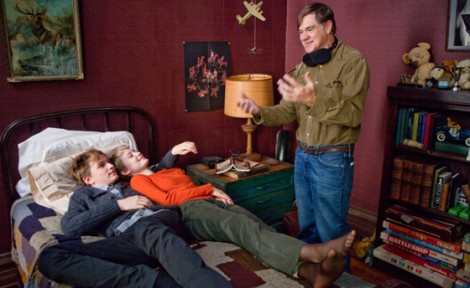
Mr. Van Sant, did the complicated motivations behind the funeral-crashing in the story feel like a challenge or was your connection to the material natural for you?
GVS: In the case of the lead male character Enoch, he’s in need of replaying a moment. Or being around people who are in a certain space, memorializing, because of his own parents death. He hasn’t gotten over it. That’s a unique character situation. He couldn’t let his own memorial end. He feels comfortable, and he meets somebody else who is at more than one memorial – who is insisting on his friendship, who needs to get away from her own sadness in her family. Annabel is sort of inverse character that in the end changes him and makes him move on to the next step.
Over the years, you have had the luxury of working in Portland, Oregon, for many of your film classics, such as “Drugstore Cowboy” (1989), “My Own Private Idaho” (1991) and through to “Elephant” (2003) and “Last Days” (2005). Even though Lew had originally imagined the story in the northeast, Portland proves again that it must be your favorite location of choice?
GVS: There wasn’t a plan to focus on Portland. Because of the clouds and rain, you get a kind of dreamy look to your images. It’s not the intention, but it’s a byproduct. It has been easy over the years to work with the Portland film commission so that’s an inherent benefit.
What did you find in first-time film actor Henry Hopper that separated him from everyone else you auditioned?
BDH: What I saw in Henry that was impressive was that he’s so inherently himself. He’s not trying to be anyone else. Henry is such a creative spirit and there’s a fire behind his creativity – he’s a cinephile. He also knows every painter. He brought an authenticity.When he did his audition it was completely different than how everyone read. Everything came alive in a way I hadn’t seen it.
GVS: He had a certain intensity that I hadn’t seen in a modern day actor.Even thought he was only 19, it was coming from a different era. I kept thinking it was coming from his Dad [actor Dennis Hopper]. It may be just the way his mind works.”
How about the very special Mia Wasikowska?
BDH: She’s wonderful. I have so much admiration for her because of the way she approaches her work and the kind of person she is given the fact she’s had so much success at her young age. The work she is doing is very powerful and is making a huge impact. She’s a fully realized talent at a young age.
GVS: I was struck by how she could make the script come alive. She was a very contained entity. She liked to have feedback when you were working with her, but she was very low maintenance. She wasn’t complaining about anything ever.
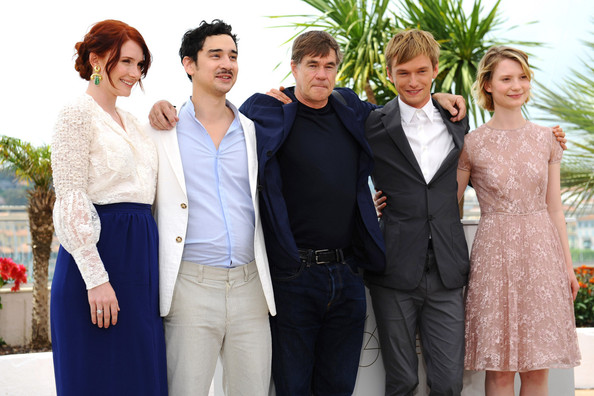
Your film opened the Un Certain Regard competition at Cannes this year, how was it?
BDH: Wonderful. I don’t expect to have another experience like that at Cannes again. It’s a very particular thing to go there with a Gus Van Sant film. It was electrifying! [She turns to Van Sant to ask him] ‘I mean, why do you think they’ve embraced you?’
GVS: Perhaps it’s their appreciation of film in France.
After so many film entries and wins for your films like “Paranoid Park” and the Palm d’Or for “Elephant” they seem favorably drawn to your films.
GVS: There are a lot of Americans they like.
BDH: I think they like you the most.




